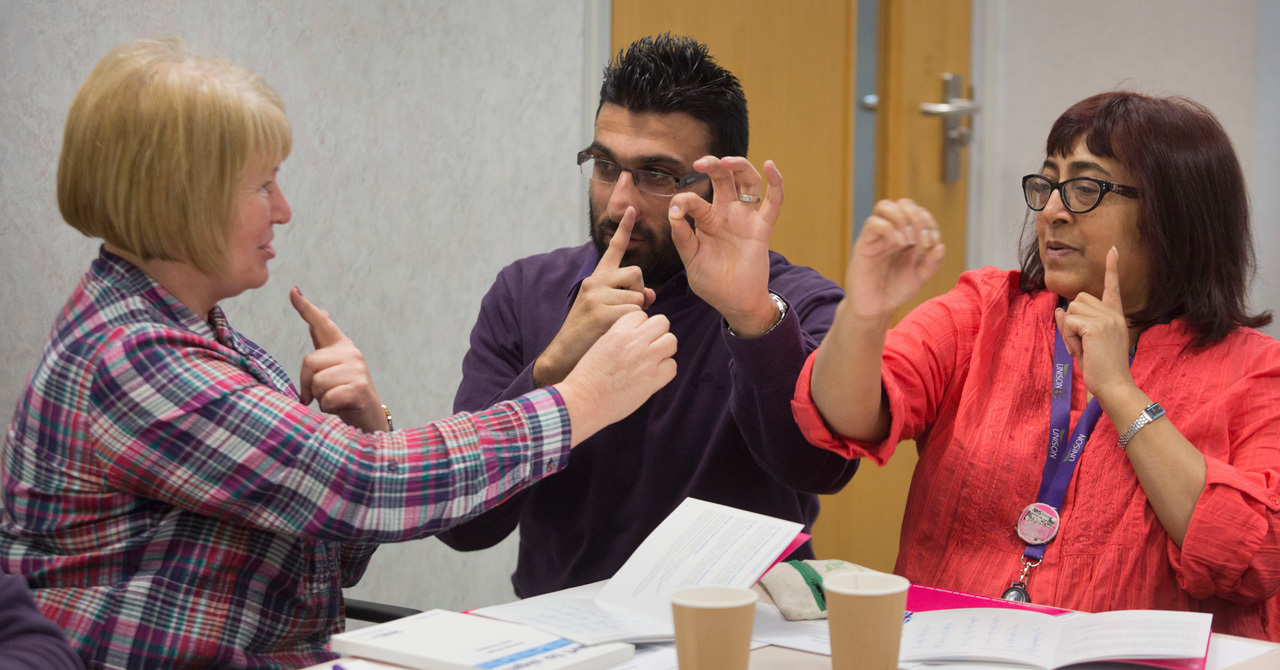

Managing difficult behaviour
Support staff need to know the best way to respond to challenging behaviour in different situations, whether it’s breaking up an argument or a fight between children, protecting someone who’s being picked on, or being faced themselves with abusive language. The teacher is theoretically the authority, the person in charge. But teaching assistants, technicians, caretakers, admin and finance staff, learning support, cooks and cleaners – every one of these staff has some contact with pupils, even if they’re not based in the classroom. Unfortunately, it is too often assumed that only teachers need support or training on behaviour management. Support staff are often overlooked. That's why UNISON commissioned this guide for support staff about managing difficult behaviour in schools.
Dealing with health needs in schools
Many support staff are expected to deal with a range health needs affecting pupils at school. Guidance on supporting pupils with medical conditions can be downloaded here. It is based on legislation which applies in England only, but the principles may also be useful to those in Northern Ireland, Wales and Scotland. UNISON has also developed a short online course called an 'e-note' aimed at staff who may be requested to support pupils with medical conditions. The e-note should take between 10 and 15 minutes to complete and is available on UNISON's learning website. Once you have created an account, you will find the 'Coping with care' course under 'For UNISON members'.
Pupils with diabetes
There’s a lot to think about when a child with diabetes starts or changes school or has a new teacher. It’s really important to establish a great standard of care so children with diabetes can be safe in school and have the same opportunities as any other student. Diabetes UK has plenty of information and support for parents and schools to ensure everyone understands the basics and can get to grips with diabetes. You can order their free schools pack to get started or download lots of other resources such as exam tools and log books, so you can be confident you have everything covered.
Guidance on the use of lesson observations for teaching assistants
Historically, lesson observations have been used to monitor the effectiveness of teachers in schools and to improve teaching and learning. Increasingly, school support staff performance is being observed to measure the impact of their interventions on the progress of pupils. The purpose of this guidance is to help you to recognise genuine opportunities to reflect on your own practice and career development but also know what to do in situations where you feel that this might not be the case. Read the guidance here.
Cover supervision - guidance on when and how it should be used
Guidance around the use of cover supervisors is not always followed locally. A UNISON-commissioned report in 2024 revealed that TAs are increasingly being asked to provide long-term cover for staff vacancies or long-term sickness. Read UNISON's guidance on how and when cover supervisors should be used.
Organising and negotiating to address workload
A UNISON survey of over 14,000 schools support workers found that nearly 55% face workload problems and are struggling to do their work each week. This guidance gives practical advice on how to share and raise concerns with colleagues and managers. The advice explains how you can work with your colleagues to seek an agreement with your school on how workload should be managed and what should be included in an agreement. Read the guidance here.
Working with learners with complex needs
A 2021 survey of UNISON members working with learners with special educational needs or additional learning needs revealed that a common concern shared was from those who work with learners who present with significant behavioural challenges as a result of a combination of social, communication, emotional and mental health needs. To support these support staff, we produced UNISON guidance on working with learners with complex needs: a guide for specialist education practitioners.
Dealing with allergens in school kitchens
The rise in the number of pupils presenting with food allergies is a concern for many school meals workers. UNISON have produced guidance to help those working in school kitchens to know what your responsibilities are, how you can identify and raise issues and what to do if you need support from your trade union. Read the guidance here.
See Also:
Union Learning Representatives (ULRs)
UNISON's union learning representatives help other members and colleagues access educational opportunities and move on at work. They have the legal right to take reasonable time off from work to promote workplace learning and development. If you are interested in education and enjoy helping other people, by becoming a ULR you could help encourage your colleagues to return to learning, while expanding your own knowledge and skills at the same time. Find out more here.
Unionlearn
Unionlearn is the training arm of the Trades Union Congress (TUC). It offers support and advice to all union members and to Union Learning Representatives. It administers the Union Learning Fund and works with Government and other organisations to represent the interests of unions and their members. Find out more here.

